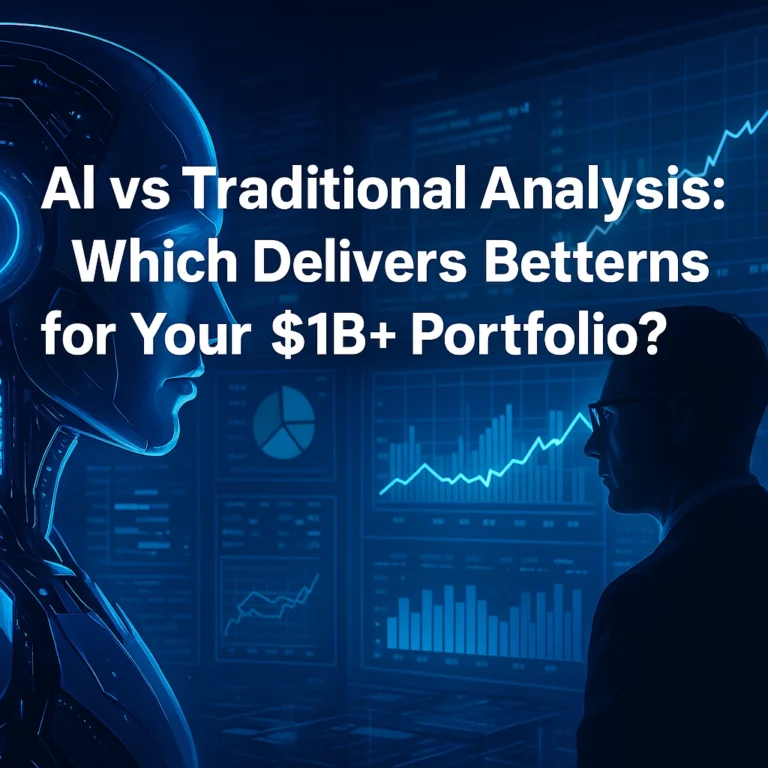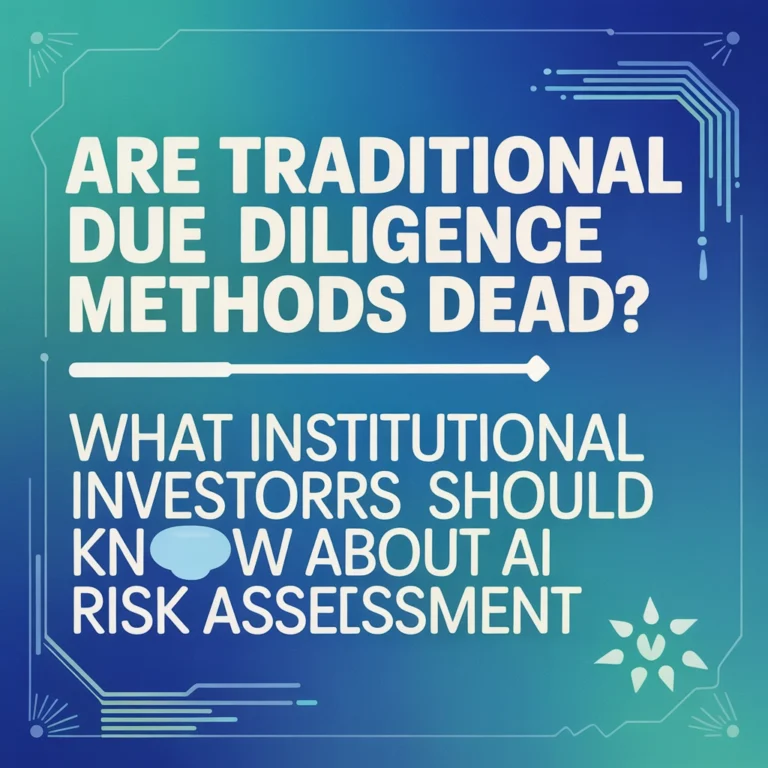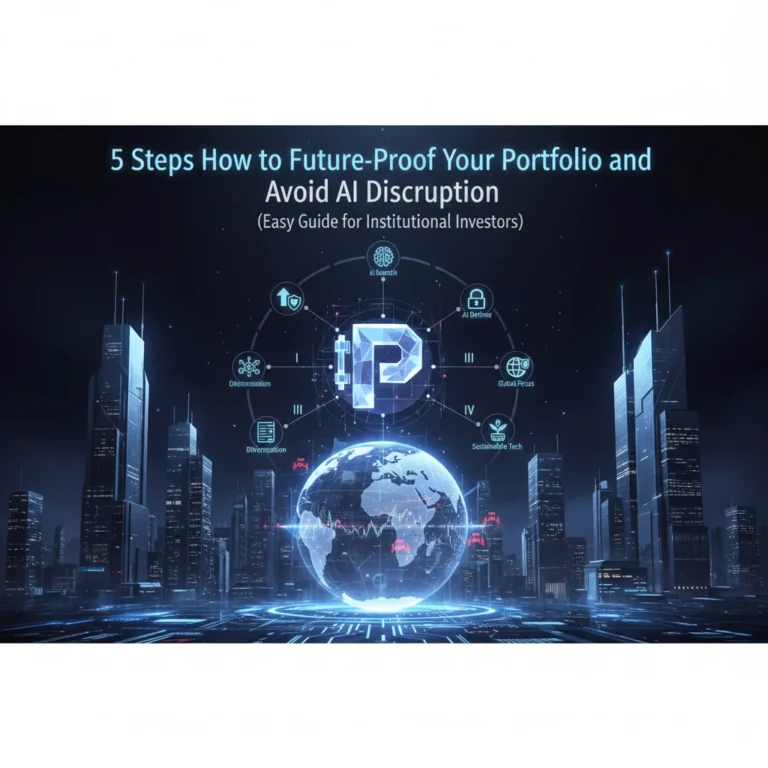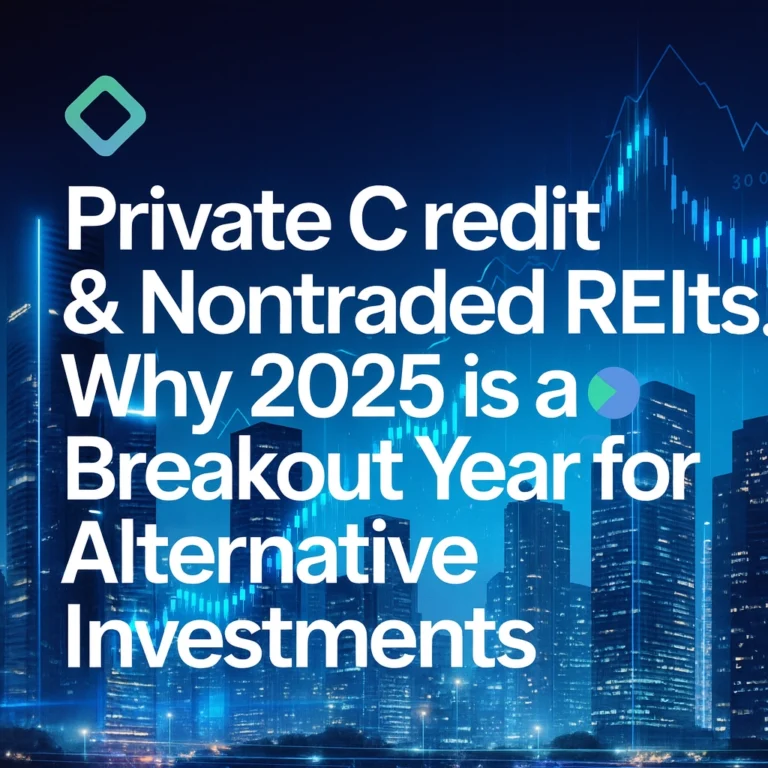7 Risk Management Mistakes You're Making with Alternative Investments (and How AI Can Fix Them)
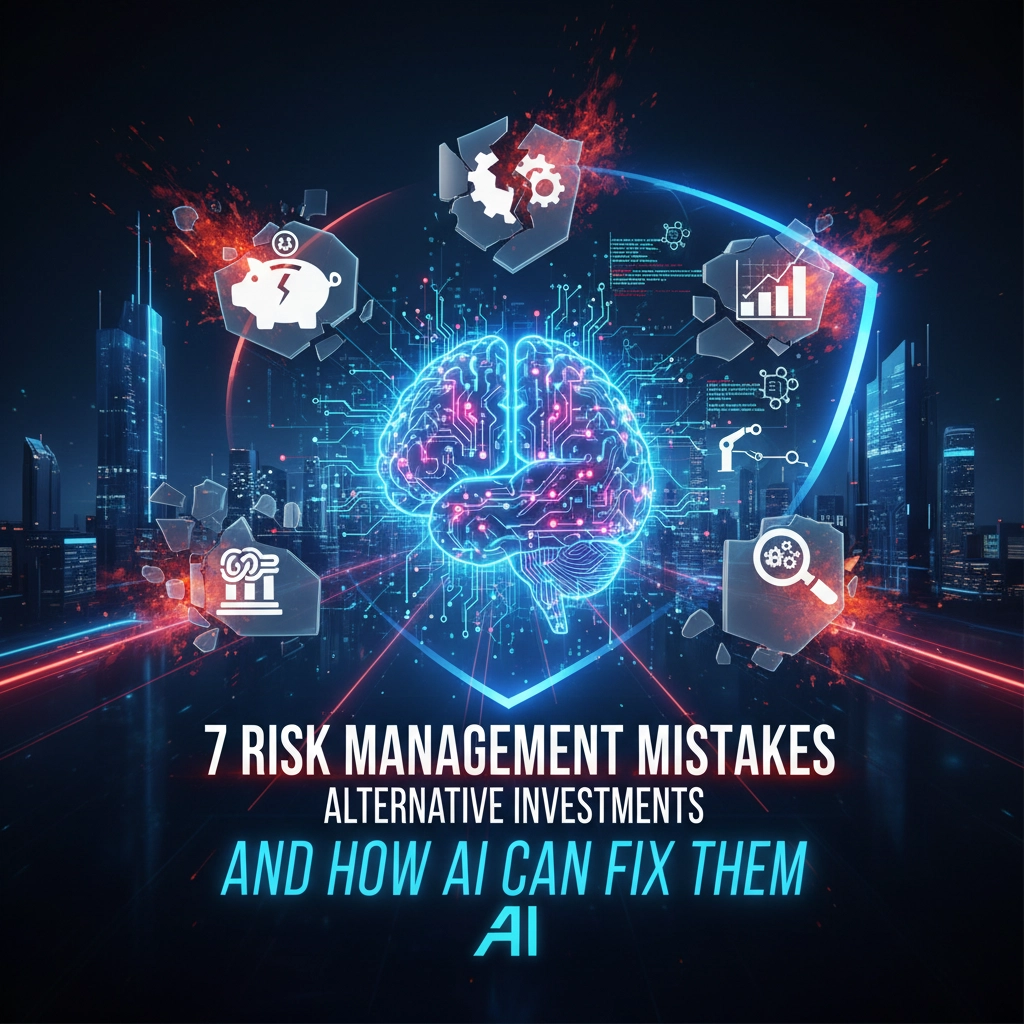
Alternative investments are having a moment. With $32 trillion expected to flow into private markets by 2030, everyone from family offices to institutional investors is scrambling to get their piece of the action. But here's the thing – most are doing it wrong.
The allure of higher returns and portfolio diversification is real, but so are the risks. After analyzing thousands of alternative investment portfolios, we've identified seven critical mistakes that are costing investors millions. The good news? AI can fix every single one of them.
Mistake #1: Flying Blind on True Risk Assessment
Most investors think they understand risk in alternatives. They don't.
Traditional risk models treat a private equity fund like a stock – focusing on volatility and correlation. But alternatives don't trade daily. They're illiquid, manager-dependent, and subject to information asymmetry that can make your head spin.
We see investors committing 30% of their portfolio to alternatives based on outdated risk assumptions. They're looking at historical volatility when they should be analyzing liquidity constraints, capital call timing, and manager dispersion risks.
How Musa AI Fixes This:
Our AI doesn't just crunch historical numbers – it builds forward-looking risk models. Musa AI analyzes over 10,000 data points per investment, including geopolitical events, regulatory changes, and economic indicators that traditional models miss. It stress-tests your portfolio against scenarios like the 2008 crisis, COVID-19 disruptions, and interest rate shocks.
The result? You get a true picture of what could go wrong before you write the check.

Mistake #2: The Diversification Mirage
"Alternatives provide diversification" is the biggest myth in investing.
Family offices regularly tell us they're "diversified" with 40% in private equity and 20% in private real estate. But here's what they're missing – these assets often share the same underlying economic drivers as public markets. They just report differently.
Private equity funds own companies. Real estate funds own properties. When the economy tanks, guess what happens to both? The only reason they look "stable" is because they don't mark-to-market daily. It's an accounting illusion, not true diversification.
How Musa AI Fixes This:
Musa AI performs deep correlation analysis that goes beyond surface-level asset classifications. It examines the actual economic drivers of each investment – revenue sources, geographic exposure, interest rate sensitivity, and competitive dynamics.
Our AI identifies true diversification opportunities, like infrastructure debt that moves independently from equity markets, or natural resource investments that hedge against inflation. No more fake diversification that disappears when you need it most.
Mistake #3: Ignoring the Liquidity Time Bomb
This one's brutal, and we see it constantly.
Investors commit 60% of their portfolio to alternatives without properly planning for liquidity needs. They assume they can always find a buyer or that distributions will come when needed. Then life happens – a market opportunity, family emergency, or economic downturn – and they're stuck.
In 2020, we watched sophisticated investors forced to sell liquid assets at market lows because their alternatives were locked up. They had the right investments but terrible liquidity management.
How Musa AI Fixes This:
Musa AI creates dynamic liquidity forecasts that model your specific cash flow needs against your alternative investment schedule. It considers capital call timing, distribution patterns, and secondary market conditions.
Our system automatically adjusts your allocation recommendations when liquidity constraints tighten. It's like having a financial planner that never sleeps, constantly optimizing your liquidity position across all scenarios.

Mistake #4: Trusting Managers Without Proper Due Diligence
Manager selection in alternatives can make or break your returns. Top-quartile private equity managers outperform bottom-quartile by 20+ percentage points annually. Yet most investors rely on marketing materials and golf course recommendations.
We've seen investors commit $50 million to funds based on a PowerPoint presentation and a few reference calls. Meanwhile, critical red flags hide in the data – portfolio company bankruptcies, key person departures, or operational issues that predict future problems.
How Musa AI Fixes This:
Our AI analyzes manager track records across multiple dimensions that humans can't process efficiently. Musa AI examines:
- Historical performance patterns and consistency
- Portfolio company operational metrics
- Management team stability and experience
- Investment thesis accuracy over time
- Exit strategy execution
The system flags potential issues before they become expensive mistakes and identifies managers with superior risk-adjusted returns.
Mistake #5: Falling for Sophisticated Fraud
Alternative investments attract sophisticated fraudsters. From fake bullion to Ponzi schemes disguised as hedge funds, the fraud risk is real and growing.
Traditional due diligence misses modern fraud techniques. Documents can be forged, references can be fake, and auditors can be complicit. By the time you discover the fraud, your money's gone.
How Musa AI Fixes This:
Musa AI employs advanced pattern recognition to identify fraud indicators that escape human detection. Our system analyzes:
- Document authenticity using computer vision
- Financial statement anomalies and inconsistencies
- Network analysis of fund relationships and structures
- Behavioral patterns that indicate potential misconduct
For physical assets, our AI uses microscopic analysis to verify authenticity – detecting fake precious metals, art forgeries, or tampered collectibles with 99.7% accuracy.

Mistake #6: Getting Lost in Complex Structures
Alternative investments love complicated structures. Multi-layered funds, offshore vehicles, carried interest calculations, and tax implications that would confuse a CPA.
Most investors don't fully understand what they're signing. They focus on projected returns while ignoring fee structures that can eat 3-5% annually, or liquidity terms that lock up capital for a decade.
How Musa AI Fixes This:
Musa AI uses natural language processing to parse complex fund documents and extract key terms automatically. Our system:
- Compares fee structures across similar investments
- Calculates true net returns after all costs
- Identifies unusual or unfavorable terms
- Flags conflicts of interest or alignment issues
You get a clear, standardized comparison of investment terms before making any commitment.
Mistake #7: Over-Relying on AI Without Human Oversight
Here's the ironic final mistake – trusting AI blindly.
As AI adoption accelerates in investment management, we're seeing a new risk emerge. Investors implement AI systems then abdicate human judgment entirely. They accept algorithmic recommendations without questioning methodology, data quality, or contextual factors.
AI is powerful, but it's not infallible. Market conditions change, data can be corrupted, and models can drift over time without proper oversight.
How Musa AI Fixes This:
At Mansa Investments, we've built human oversight directly into our AI framework. Musa AI includes:
- Explainable AI that shows exactly why it made each recommendation
- Confidence scores that highlight uncertain predictions
- Automated alerts when model performance degrades
- Regular validation against human expert judgment
Our investment committee reviews all AI recommendations, combining algorithmic insights with human intuition and market experience.
The Bottom Line
Alternative investments offer tremendous opportunities for sophisticated investors. But success requires more than capital – it demands advanced risk management capabilities that most investors lack.
By avoiding these seven mistakes through intelligent AI implementation, you can capture the upside of alternatives while managing their unique risks. The key is combining technological sophistication with human expertise.
Ready to see how Musa AI can transform your alternative investment approach? Visit our platform to learn more about our AI-powered risk management solutions.
The future of alternative investing isn't just about finding the best opportunities – it's about managing risk better than everyone else. And that's exactly what AI enables you to do.

